
The ecology of a young woodland can be handily broken down into seven layers. Each layer is at a different level so they are not competing for growing space. The ideal is that your forest garden will incorporate plants from each layer to maximise use of the vertical space within your garden. In reality there is no strict rule that says if yours only has four or five layers you cannot call it a forest garden. It is an aspiration, and especially on a smaller scale, all seven layers can be difficult to achieve.
SEVEN LAYERS OF A FOREST GARDEN
1: CANOPY LAYER These are the tallest trees such as nut trees or large fruit trees. In small gardens this layer is usually absent as many gardens wouldn’t manage to accommodate even one large tree, never mind allow any light to reach the floor for the other layers.
2: LOWER TREE LAYER Dwarf fruit and nut trees, usually under 3m in height.
3: SHRUB LAYER These are usually currant bushes or other berries.
4: HERBACEOUS LAYER These are the plants that will grow each year but die right back to ground level in the winter, unless they are evergreen. They are distinguished from the shrubs by the absence of a permanent branching structure.
5: GROUND COVER LAYER Plants that hug the ground; these are usually spreading plants that grow along the soil surface and cover the bare ground.
6: RHIZOSPHERE Many think of the soil surface as the lowest layer, however many plants have edible roots. Several of our staple crops grow in the rhizosphere, such as carrots and potatoes.
This story is from the {{IssueName}} edition of {{MagazineName}}.
Start your 7-day Magzter GOLD free trial to access thousands of curated premium stories, and 9,000+ magazines and newspapers.
Already a subscriber ? Sign In
This story is from the {{IssueName}} edition of {{MagazineName}}.
Start your 7-day Magzter GOLD free trial to access thousands of curated premium stories, and 9,000+ magazines and newspapers.
Already a subscriber? Sign In

SEPTEMBER SPECIALS
This month, with sweetcorn, figs and blackberries on the menu, Anna Cairns Pettigrew is not only serving up something sweet and something savoury, but all things scrumptious
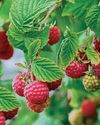
FLAVOURSOME FRUIT AUTUMN RASPBERRIES
September - is it late summer or the start of autumn? David Patch ponders the question and says whatever the season, it's time to harvest autumn raspberries
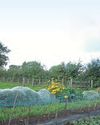
SOW GREEN THIS AUTUMN
Covering the soil with a green manure in winter offers many benefits and this is a good time to sow hardy types, says KG editor Steve Ott

A HISTORICAL HAVEN OF FRUIT AND FLOWERS
KG's Martin Fish takes time out from his own plot to visit a walled garden in Lincolnshire which has been home to the same family for more than 400 years
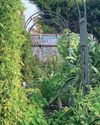
RESTORING THE BALANCE
The phrase regenerative gardening is often heard in gardening circles, but what is it? Can it help you to grow better veg? Ecologist Becky Searle thinks so, and tells us why
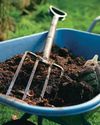
WASTE NOT, WANT NOT
Garden Organic's Anton Rosenfeld shares his expertise on using compost made from green bin collections with handy tips on getting the right consistency and quality
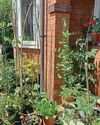
Celebrating Organic September!
In this special section we bring you four great features aimed at improving your crops and allowing nature to thrive
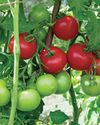
SEEING RED
Do your tomatoes have a habit of remaining stubbornly green? Or perhaps you're lucky to enjoy lots of lovely fruits - just all at once. Either way, Benedict Vanheems is here with some top tips to ripen and process the nation's favourite summer staple
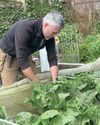
NEW KIDS ON THE BROCCOLI!
Rob Smith is talking broccoli this month with a review of the different types available and suggestions for some exciting new varieties to try
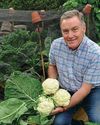
A NEW kitchen garden
Martin Fish is getting down to plenty of picking and planting on the garden veg plot, while Jill is rustling up something pepper-licking good!